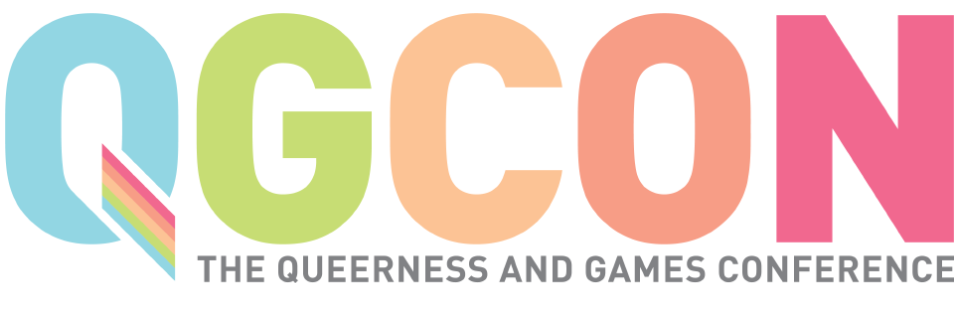
The Queerness in Games Conference (QGCon) spoke volumes in its presentation. QGcon is a traveling annual convention hosted in various cities around California. For its 5th anniversary, QGCon crossed borders; hosted by Concordia in downtown Montreal, Canada. The convention had over 250 registered attendees, nearly 40 presenters, and 26 games featured in the arcade center—ranging from board games to 3D dungeon-crawlers.
With sponsorships from Unity, Ubisoft, and EA (among others), Montreal was sure to make QGCon and its attendees feel welcome. As a part of that initiative, Riley Morrissey (Game Art ‘20), Tim Carbone (Game Design ’20), and I (Professional Writing ’19) signed up as volunteers.
Almost immediately, we were thrown right into the action. I was led to the arcade room—a refurbished teaching space somewhere in the bowels of Concordia—and for the next couple of hours, I watched game dev teams slowly trickle into the space,very eager to get the show on the road. I helped them by directing them to the right spot and making sure they had everything they needed, as well as contacting staff in case any issues arose.
Whilst I was helping out in the arcade room, Riley and Tim got the opportunity to wander the con space. “All in all, the space felt really inclusive,” Riley said, recalling an attendee saying, “I feel so safe here, so welcome, and so comfortable.”
Meanwhile, Tim wasn’t sure what to expect, but was pleasantly surprised. “It seemed extremely relaxed in comparison to other smaller cons I’ve been to, and people were extremely eager to just talk”, he says. “The games were very interesting and a breath of fresh air in terms of their subject matters.”
Besides Kitfox Games, just about everyone there was an individual developer or operating on a team of 2 or 3 out of their dorm or home. Despite their humble presentations, their games were anything but. Here’s a few of the games presented:
Burn Ban is a visual novel chronicling a girl named Twig; she identifies as queer, suffers from mental health problems, and her summer will be spent at a camp of misfit youth. Out of the blue, her dead friend’s phone begins to send her cryptic messages, and it’s up to Twig to solve the mystery. Despite Twig’s sensitive identities, the writing feels down-to-earth; the UI also makes use of Twig’s phone, introducing an element of retrospective narrative—a whole backlog of texts for the player to read—that really sells the idea of a living world. It’s currently being written by a team of two: Harrison Barton and Morgan Rowe.
Meanwhile, The Colored Moth is a simple top-down, pixelated experience—but it still gets away with communicating a great deal. Inspired by real events, Ahmed Khalifa, the game’s creator, uses moths as a fill-in metaphor for sexuality. Along the way, Khalifa explores the feelings of being persecuted by one’s own religion and being outed without one’s consent. It’s a short, simple, straightforward game—but it holds no punches; to that extent, it’s simplicity makes it all the more potent.
Tim’s favorite game was Later Daters, a dating simulator set in a Golden Girls-esque nursing home. “The UI/UX designer on the team was there”, he remembers, “and she felt really easy and interesting to talk to.”
The games at QGCon echoed the myriad experiences lived day-in and day-out by their creators. It’s rare to find games willing to speak about such raw subject material in a candid fashion; it almost felt like an entire genre in and of itself, despite occupying a range of genres: dungeon crawler, visual novel, board games, card games, you name it. There is no doubt that diversity in gaming is alive and well, and I’m thankful that outlets like QGCon provide these diverse voices the platforms to sing.
This entry was originally posted on December 6, 2018.
